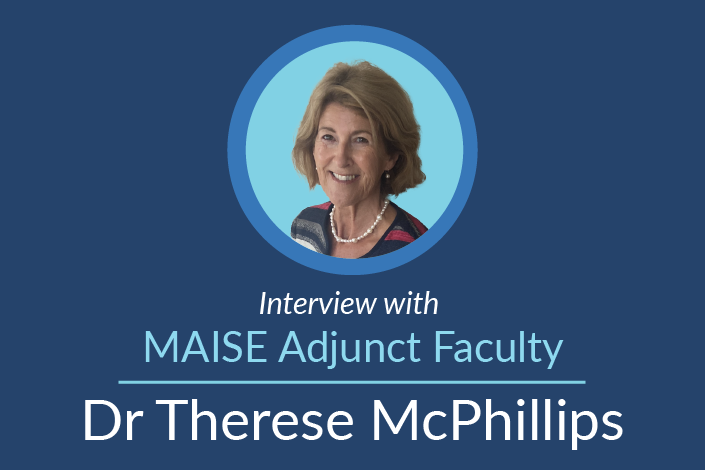
Our MA/PG Dip (Arts) in Inclusive and Special Education (MAISE) will soon be accepting applications to join the upcoming cohort in September. The programme is offered jointly by Hibernia College and the Institute of Child Education and Psychology (ICEP) Europe on a modular, part-time basis for maximum flexibility, with the option to complete either an MA or a PG Dip (Arts) in Inclusive and Special Education.
Dr Therese McPhillips, an adjunct faculty member teaching on the programme, shares her reflections on the inclusive and special education programme thus far.
If you are an educator working with learners with special and additional learning needs in diverse educational settings and are interested in learning more about this programme, register for the webinar on 11 July. And now, to Therese.
What module(s) do you teach on the programme?
I teach Dyslexia and Literacy (MAISE 103).
Can you share more about your educational and professional background?
I have wide-ranging experience as a class teacher, learning support teacher and special class teacher (19 years). I was formerly the principal of a special school for children with dyslexia (11 years).
I joined St Patrick’s College/DCU in 2006 and have taught in the Special Education Department and in the School of Language, Literacy and Early Childhood Education (LLECE). Although I retired in 2017, I have continued to teach in both undergraduate and postgraduate programmes at DCU.
What drew you to the field of inclusion and special education?
Every teacher is a special education teacher! I believe the class teacher has central responsibility for all the students in his/her class, and accommodating individuals with additional or ‘special’ needs should be integrated into the planning and differentiation of curriculum from the beginning, not an ‘add on’ or something additional at the end. However, teachers need the knowledge, understanding and skills to enable them to become confident and competent to include all students.
The knowledge and methodologies and practices that are practised in special settings (special classes and schools) should be more widely available to all teachers.
I am a strong believer in research underpinning practice, and this drew me to the area of inclusion and special education. It is vital that teachers gain a critical understanding of key theories, concepts and issues informed by current research in order to better support their students.
What have been your highlights of teaching on the MA/PG Dip (Arts) in Inclusive and Special Education?
I have been impressed with the engagement of students during this Dyslexia and Literacy module. They made connections to their own practice and work setting through the learning activities and shared their experiences and challenges openly. Although the delivery was predominantly online through live webinars and drop-in webinars, the feeling was very much a real live-class cohort! I think they were actually learning from each other as well as the materials. The standard of the final assignment indicated a high level of academic achievement overall.
How do you define being an ‘inclusive educator’?
Teaching and learning are two sides of the same coin. An ‘inclusive educator’ will be a ‘responsive’ teacher and will encourage the students to share their existing knowledge and prior learning, relate it to their own lives and make connections to the new learning. Basically, students must feel they are included, the classroom must be supportive and welcoming, and that the teacher has high expectations for all of them. Positive student-teacher relationships are essential.
In addition, the principles and practices of Universal Design for Learning (UDL) also provides a framework that can inform the teacher to plan for diverse learners and provide them with multiple ways of engaging and accessing content.
What is your vision for graduates of the programme?
I tell my students there is no such thing as a learning problem, only a teaching problem. We are responsible for ensuring that all the students in the class can access the curriculum and achieve their potential. This is inclusion in action.
Each module focuses on one aspect of learning. The first module focuses on inclusion and this is followed up by dyslexia and literacy. My vision is that the graduates of the MAISE will be reflective practitioners equipped with the knowledge, skills and mindset to provide an inclusive and responsive curriculum for their students and, where necessary, to implement research-based interventions to accommodate individual needs.